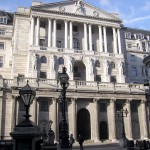Following is a globalization economy bank report from the Bank of England and its conclusive opinions. But will action be taken or is this just another report for the archives? Time will tell.
Speech by Andrew Sentance – The Global Economy and UK Inflation
24 September 2007
In this speech, Andrew Sentance, an external member of the Bank’s Monetary Policy Committee, describes the role the wider global economy plays in UK monetary policy through its influence on the outlook for inflation. Speaking at an event organised by the Leeds Financial Services Initiative, Dr Sentance explains how UK inflation can be influenced by forces beyond the control of the Bank of England, at least in the short term, and the challenges this presents.
“Global economic developments – such as the recent turbulence in financial markets – also have an important bearing on the decisions of the Monetary Policy Committee”, he notes. “In an open economy like the UK, global forces can cause inflation to fluctuate around its target level in the short term, and also inject volatility into the real economy”. However, he argues, “Ultimately, it is domestic monetary policy – not the state of the global economy – which will determine the UK inflation rate”.
Dr Sentance considers in turn three main channels of global influence on domestic inflation, through: the direct and indirect impact of import prices; the level of global demand; and the prevailing pricing climate. He then sets out how monetary policy can act as a stabilising force in the face of such shocks, through its ability to affect the exchange rate, domestic demand and price expectations. “The practice of monetary policy continually involves judgements about how to react to shocks to UK demand and inflation arising from the global economy. It is clearly not practical for policy-makers to try and offset every shock”, he argues. “However, if the MPC is to be true to our mandate, we should be trying to avoid large and persistent deviations in inflation from our target”.
He argues that global trends exerted a largely disinflationary influence in the late 1990s and early 2000s, but that since 2004 the global environment has become a source of inflationary pressure, with strong global growth pushing up energy and commodity prices and boosting UK demand. “Over the past decade, the strength of demand from the world economy and the impact of global inflationary pressures have both had an important bearing on UK monetary policy”.
Commenting on recent developments, Dr Sentance notes “As a Committee, we now face a new challenge – of assessing the impact of financial market developments over the summer and deciding how they should affect our monetary policy judgements over the remainder of this year and into 2008”. However, he concludes, “we need to assess the impact on the real economy and inflation before coming to any judgements on monetary policy. So far, the full implications are far from clear”.
Key Resources on the Globalization Economy
http://www.bankofengland.co.uk/publications/news/2007/098.htm
Conclusion on this globalization economy bank report …
This is an interesting read on the globalization economy and the effects of the 2004 inflationary movement in spending habits.
